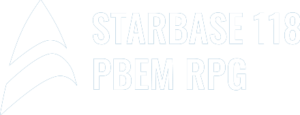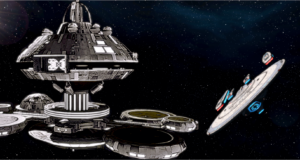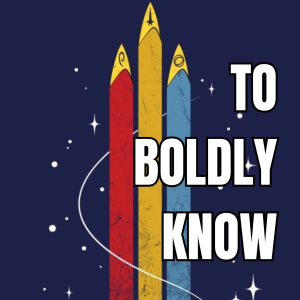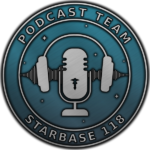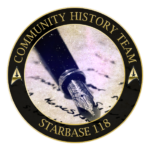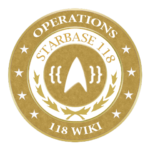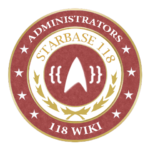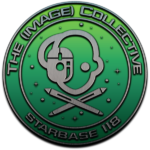Conflict is the bedrock of drama in storytelling. It is often the most exciting and memorable part about a story. In a roleplaying game like StarBase 118 it is easy to approach a main mission conflict where your character and your fellow crew mates are pitted against an adversary or problem. This is the classic us versus other set up; even if the other is not bad nor evil (a common theme in Star Trek stories) the crew is unified against the same problem.
But how do you handle it when your character has a conflict with another character? Even if you are on the same team, character can have conflicting viewpoints on how to solve the problem. As simmers become experienced and mature as writers they may also explore more personal conflicts that reflect the complex relationships we see in real life. But if you are new to roleplaying these conflicts can feel frustrating and overwhelming. Here are some tips to practice writing in character conflict so it turns into healthy and enjoyable story drama rather than a frustrating out of character situation.The first key in gaining experience with in character conflict with other player characters is to keep an open line of OOC communication. Experienced players and your ship’s staff strive to make it clear that while their character may disagree with your character they as a player want to support you as a player. Many experienced players enjoy in character conflict because it adds intrigue and drama into the storyline, and never intend (in fact they may never even think about the fact) that in character conflict could read as out of character anger to another player. If you are feeling uncomfortable, ask your mentor, your ship’s staff or the other player to confirm what they are thinking out of character. Discord can be an easy venue to discuss conflicting plot points and work out with your fellow players how you want the drama to play out.
The second key in writing in character conflict is to focus on narrative that describes your characters motivations. The more description you can give on what your character is thinking or feeling, the more your fellow players will be able to empathize with your character.
Consider the different effects the two following examples have:
Ryker: Mr. Leenix, you need to be more careful with scanning and vetting new food sources for the crew. Those Aldabian mushrooms sent seventeen people to sickbay with a severe allergic reaction!
Leenix rolled his eyes at Ryker and then came to attention.
Leenix: ::hurt:: I’m sorry I tried to feed the crew. Next time you can gather the food source, Commander.
Ryker: response?
If you were playing Commander Ryker how would you read this scene? If you have to craft a response do you read this as Leenix is actually sorry or is Leenix being insubordinate? Well, Leenix could be either and Leenix’s writer has not given enough narration to clarify Leenix’s thought processes. This means when Ryker responds, Ryker’s player will have to decide whether or not that seems seems insubordinate and react accordingly. However, writers can avoid this uncertainty by adding more narration:
Ryker: Mr. Leenix, you need to be more careful with scanning and vetting new food sources for the crew. Those Aldabian mushrooms sent seventeen people to sickbay with a severe allergic reaction!
Leenix pulled himself up, rolling his eyes in his people’s gesture of respect for a superior. Unfortunately he hadn’t yet learned that this action meant something very different to a Terran. It wasn’t a gesture he used very often because he liked to approach people as equals rather than placing them in the strict hierarchy of his people – the hierarchy he had run away from. As he caught Ryker’s glance at his gesture, he immediately realized that yes, he had done something to anger him. Oops? Feeling terrible at the faux pas he straightened into the best approximation of a Terran stance of attention that he could manage.
Leenix: I’m sorry ::he paused, taking in a breath. It was hard for him to express how bad he felt when the first person had to be beamed into sickbay. He was still bad with Federation words and always seemed to trip on them.:: I tried to feed the crew. ::His big eyes widened.:: Next time you can gather the food source, Commander.
Or at least the Commander could double-check his work.
Ryker: response?
In this example we get a much more empathetic view of Leenix as a character struggling to communicate with an alien species he doesn’t fully understand and Ryker has a better guide on how to react. Even if Ryker isn’t a telepathic or empathic character, the writer has a visual picture of how Leenix is standing, talking and reacting which will guide Ryker’s next responses. Clarifying your narration on why your character says and does what they choose to do is a great way to become a better simmer and it’s an integral part of helping your fellow writers play through in character drama in an interesting and productive way.
The last key is practice, practice, practice. Remember in the real world people disagree about all sorts of things every day, from what to eat for dinner to which political ideas they support, from which project in a list should be worked on first to major life decisions. Disagreement is natural and it is a healthy thing for writers to explore. Start small and gain comfort in your communication and narration so you can start enjoying these in character drama moments!
